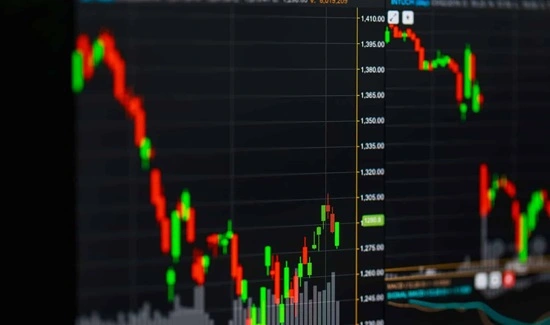The foreign exchange market is the largest financial market in the world. Every day, currencies worth several trillion dollars are traded globally. While large institutions and banks dominate a significant portion of the market, individual Thai traders also participate through online platforms. This activity is commonly known as forex trading.
Understanding how forex trading operates is essential for Thai investors who plan to participate. This article explains the structure of the market, how trades are conducted, and what is required for Thai residents to start trading currencies.
Basic Principles of Forex Trading

At its core, forex trading involves exchanging one currency for another in anticipation of changes in their relative value. Thai traders aim to profit from price fluctuations between currency pairs, including popular THB pairs such as USD/THB, EUR/THB, and GBP/THB.
Currencies are always quoted in pairs, such as EUR/USD or USD/THB. The first currency in the pair is known as the base currency, while the second is the quote currency. When you buy a currency pair, you are buying the base currency and selling the quote currency simultaneously. When you sell the pair, you do the opposite.
For example, if a Thai trader believes that the US dollar will strengthen against the Thai Baht, they would buy the USD/THB pair. If the dollar does indeed rise in value relative to the Baht, they can later sell the pair for a profit. This is particularly relevant for Thai traders who are familiar with THB fluctuations due to tourism, exports, and Bank of Thailand monetary policy decisions.
The Structure of the Forex Market
Unlike the Stock Exchange of Thailand (SET), the forex market does not have a centralized exchange. It operates as an over-the-counter (OTC) market, meaning that transactions occur directly between participants via electronic communication networks or telephone.
Key participants include:
- Banks and financial institutions (including major Thai banks like Bangkok Bank, Kasikornbank, and Siam Commercial Bank)
- Central banks (including the Bank of Thailand)
- Multinational corporations (including Thai companies with international operations)
- Hedge funds and investment firms
- Individual Thai traders
The market operates 24 hours a day during the business week, thanks to its global nature. For Thai traders, this means trading begins on Monday morning with the opening of the market in Asia (conveniently aligned with Thai time zones) and continues through Saturday morning when the US markets close. This schedule allows Thai traders to participate during regular business hours in Thailand as well as evening sessions.
How Trades Are Executed
To trade currencies, individual Thai traders use brokers who provide access to electronic trading platforms. These platforms display real-time currency quotes for major pairs and THB crosses, allow you to execute buy and sell orders, and offer various analysis tools suitable for Asian market conditions.
When a Thai trader places a trade, the broker routes the order to its network of liquidity providers or matches it internally. The trade is then executed, and the position appears in your trading account. Thai traders can typically access these platforms through desktop computers, mobile apps, or web browsers. Professional platforms like Meta trader 5 offer advanced charting capabilities and automated trading features that are particularly useful for analyzing THB pairs and regional market patterns.
Each position you open will have an associated spread (the difference between the bid and ask price) and possibly a commission, depending on the broker’s pricing model. Spreads on THB pairs may be wider than major currency pairs due to lower liquidity in Thai Baht trading.
Margin and Leverage
One of the unique aspects of forex trading is the use of leverage. Leverage allows Thai traders to control a larger position size with a smaller amount of capital, subject to regulations that may apply to Thai residents.
For example, with leverage compliant with Thai regulations, a trader might control a position worth 200,000 THB with only 4,000 THB in margin. While this can amplify profits, it also increases the risk of significant losses, which is particularly important for Thai traders to understand given the volatility that can affect emerging market currencies like THB.
To manage risk, brokers provide tools such as stop-loss orders and margin requirements. It is important for Thai traders to understand these mechanisms before using leverage in trading, especially when dealing with THB pairs that can be affected by regional economic events.
Factors Influencing Currency Prices
Several factors influence currency prices, with particular relevance to Thai traders:
Interest rates: The Bank of Thailand’s policy rates can significantly impact THB strength and attract or deter foreign investment.
Economic indicators: Thai economic data such as GDP growth, inflation rates, tourism numbers, and export figures directly impact THB values and currency pairs involving the Baht.
Geopolitical events: Political stability in Thailand and the broader Southeast Asian region, trade agreements with major partners like China and the US, and regional conflicts can affect market sentiment toward THB.
Market sentiment: Expectations about Thai economic policy, tourism recovery, and investor behavior in emerging markets can drive short-term price movements in THB pairs.
Commodity prices: Since Thailand is a major exporter of agricultural products and commodities, changes in global commodity prices can significantly impact the Thai Baht.
Because the forex market is influenced by a broad range of factors affecting Thailand’s economy, Thai traders often use both technical and fundamental analysis to inform their decisions, with particular attention to regional economic developments.
Comparison: Trading Methods for Thai Traders
| Trading Style | Time Commitment | Best For Thai Traders | THB Pair Focus | Risk Level |
| Scalping | High (several hours daily) | Full-time traders | USD/THB, EUR/THB | High |
| Day Trading | Medium (4-8 hours daily) | Part-time professionals | Major THB pairs | Medium-High |
| Swing Trading | Low (1-2 hours daily) | Working professionals | THB crosses, regional pairs | Medium |
| Position Trading | Very Low (weekly analysis) | Long-term investors | THB vs major currencies | Low-Medium |
Getting Started for Thai Traders
If you are a Thai resident new to forex trading, the first step is to choose a reputable broker that accepts Thai clients and complies with relevant Thai regulations. Platforms like fbs.co.th provide comprehensive services specifically designed for Thai traders, offering local language support and THB account denominations.
Once you open a trading account and fund it (potentially using Thai bank transfers or other methods available to Thai residents), you will have access to the trading platform and the ability to place live trades.
It is advisable for Thai traders to start by learning the basics and practicing with a demo account before trading with real money. Many brokers offer demo accounts that allow you to simulate trading conditions without financial risk, including practice with THB pairs and Asian market hours.
Thai traders should also consider:
- Understanding Thai tax implications of forex trading profits
- Ensuring compliance with Bank of Thailand regulations regarding foreign exchange transactions
- Choosing brokers that offer customer support during Thai business hours
- Selecting platforms that provide Thai Baht account denominations if preferred
Conclusion
Forex trading provides opportunities for individual Thai traders to participate in the global currency markets while leveraging their understanding of local Thai economic conditions. By understanding how trades are executed, how leverage works, and what factors influence currency prices (particularly those affecting THB), Thai traders can approach the market with greater confidence.
Opening a trading account with a reliable broker that serves Thai clients will provide the tools needed to participate effectively in currency trading. As with any form of trading, ongoing learning about both global markets and Thai economic factors, combined with disciplined risk management, are key to long-term success for Thai forex traders.

